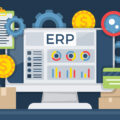In 2024, Enterprise Resource Planning (ERP) systems have become essential for businesses aiming to streamline workflows, enhance productivity, and facilitate informed decision-making. An ERP system comprises various modules, each tailored to meet specific organizational needs. This blog explores the 12 key ERP modules, their features, and the benefits they offer, helping businesses strengthen their operations and drive growth.
1. Financial Management Module
Features:
- General Ledger
- Accounts Payable/Receivable
- Budgeting and Forecasting
- Financial Reporting and Analysis
Benefits:
This module centralizes financial data, enhances accuracy, and facilitates better decision-making through comprehensive financial reports.
2. Human Resource Management (HRM) Module
Features:
- Employee Data Management
- Recruitment Processes
- Onboarding
- Performance Appraisal
- Payroll Management
Benefits:
Streamlining HR functions increases employee engagement and compliance with labor laws, ultimately boosting productivity.
3. Inventory Management Module
Features:
- Real-time Inventory Tracking
- Order Management
- Stock Optimization
- Supplier Relationship Management
Benefits:
By providing real-time insights, this module reduces carrying costs and stockouts, ensuring efficient order fulfillment.
4. Supply Chain Management (SCM) Module
Features:
- Vendor Management
- Procurement Processes
- Logistics and Distribution Management
- Demand Forecasting
Benefits:
The SCM module enhances collaboration with suppliers, improving overall supply chain efficiency and reducing lead times and costs.
5. Manufacturing Module
Features:
- Production Planning and Scheduling
- Bill of Materials (BOM) Management
- Quality Control
- Shop Floor Management
Benefits:
This module minimizes production errors, reduces waste, and ensures high-quality products that meet customer demands.
6. Customer Relationship Management (CRM) Module
Features:
- Lead and Opportunity Management
- Sales Forecasting
- Customer Service and Support
- Marketing Automation
Benefits:
The CRM module strengthens customer relationships, enhances sales performance, and improves customer satisfaction through personalized interactions.
7. Project Management Module
Features:
- Project Planning and Scheduling
- Resource Allocation
- Budgeting and Expense Tracking
- Time and Task Management
Benefits:
This module facilitates effective project tracking, ensuring timely completion within budget constraints.
8. Business Intelligence (BI) Module
Features:
- Data Analytics and Visualization
- Reporting Tools
- KPI Dashboards
- Predictive Analytics
Benefits:
The BI module provides actionable insights, empowering organizations to make informed strategic decisions.
9. E-commerce Module
Features:
- Online Storefront Management
- Shopping Cart Functionality
- Payment Processing
- Customer Account Management
Benefits:
This module enables seamless online transactions, enhances customer experiences, and integrates e-commerce with other business operations.
10. Compliance Management Module
Features:
- Regulatory Compliance Tracking
- Risk Management
- Audit Trails
- Policy Management
Benefits:
This module ensures compliance with industry regulations, reducing penalties and enhancing corporate governance.
11. Service Management Module
Features:
- Service Request Management
- Field Service Management
- Maintenance Scheduling
- Customer Support Tracking
Benefits:
Optimizing service delivery enhances customer satisfaction and improves operational efficiency in service-oriented businesses.
12. Asset Management Module
Features:
- Asset Tracking and Management
- Maintenance Scheduling
- Depreciation Tracking
- Lifecycle Management
Benefits:
This module optimizes asset utilization, reduces operational costs, and extends asset lifetimes.
Conclusion
Choosing the right ERP modules is crucial for organizations looking to thrive in 2024. Each module offers unique features and benefits that can significantly enhance operational efficiency and strategic decision-making. By understanding the various ERP modules available, businesses can leverage these tools for growth, collaboration, and competitive advantage in a dynamic market.
To achieve your business objectives, carefully assess your needs and consult with experienced ERP service providers. A well-implemented ERP system can prove invaluable, delivering long-term benefits and supporting your organization’s success in the years to come.





